Froome: We must do everything to tackle doping
Sky rider exclusive on TUE abuse, 24-hour testing and talking to CIRC
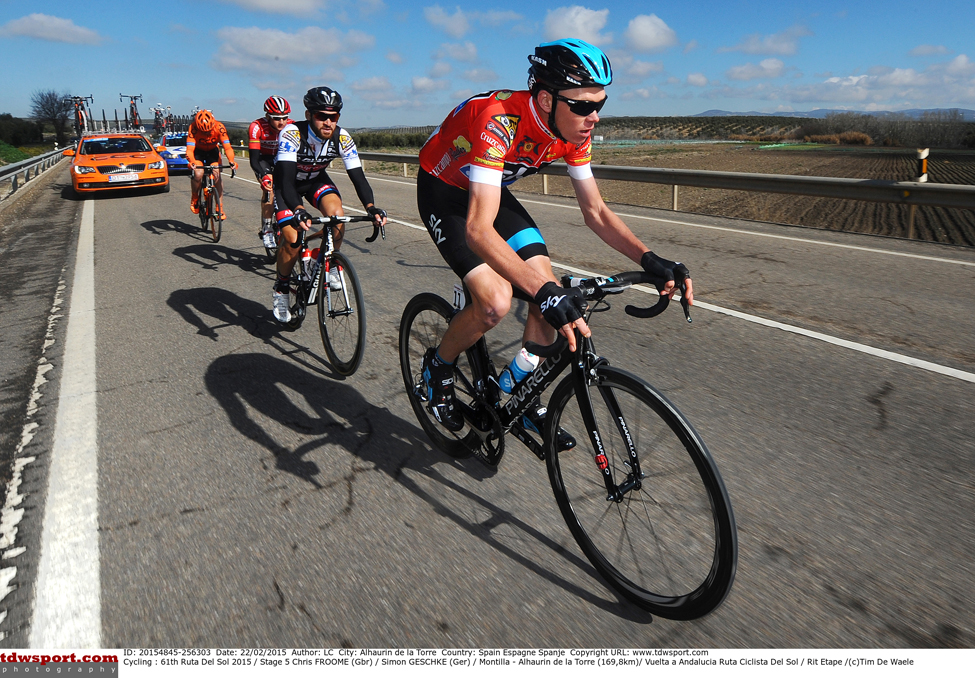
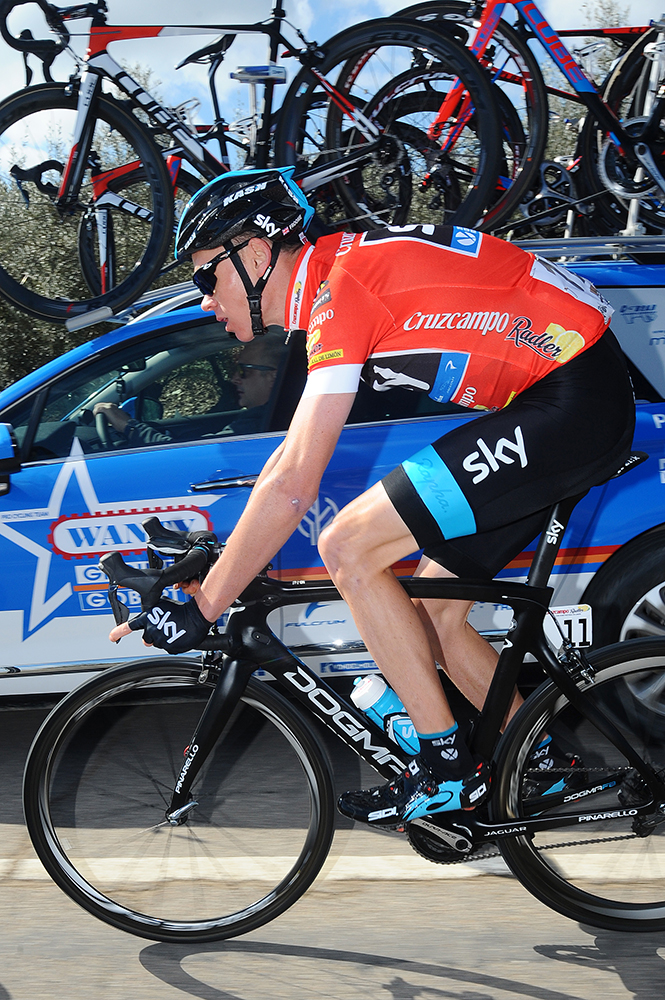

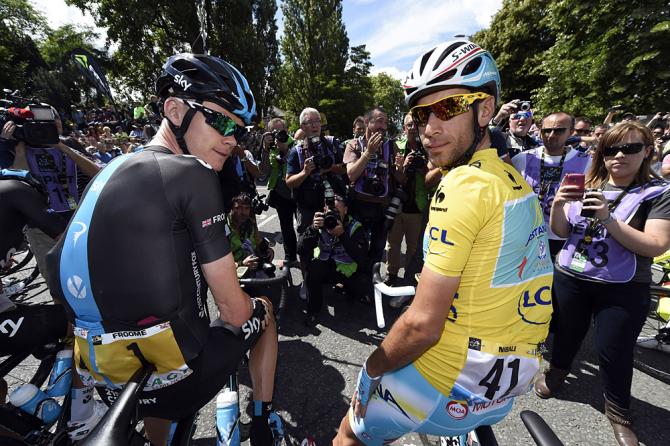
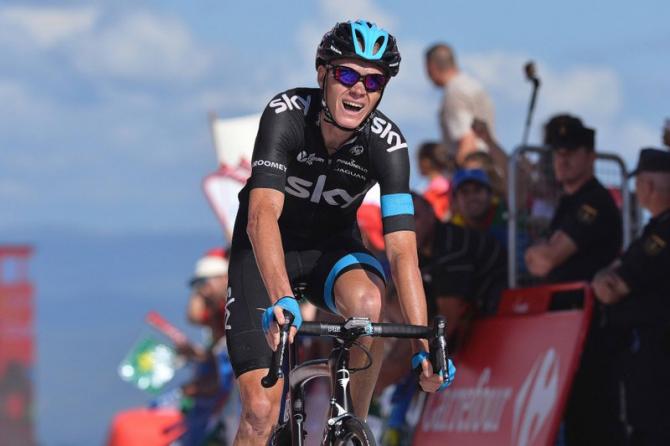
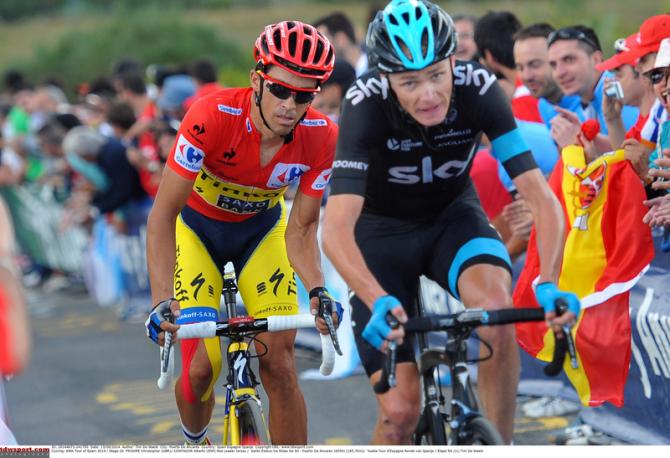
Chris Froome (Team Sky) would welcome the introduction of the UCI rolling out 24-hour drug testing, telling Cyclingnews that the sport “must do everything it can to tackle doping.”
The recommendation for around the clock anti-doping measures was made by the Cycling Independent Reform Commission (CIRC) as part of their blueprint for a cleaner sport. It remains to be seen if the sport’s governing body is in favour of such a measure or whether the structure and finances to launch such a project are feasible, but Froome, who confirmed that he was asked to meet with CIRC, said that he would be willing to have testers knocking at his door at any time, and at any race.
“I believe that the sport has to do everything it can to tackle doping,” Froome told Cyclingnews via email after a request for an interview.
“Given the culture and deceit of the past, that means addressing every possible avenue that can help make cycling as clean as possible. The CIRC report highlighted the potential window of opportunity for micro-dosing between 11pm and 6am. So it is the responsibility of the UCI to close it down. As I’ve said before, I’d certainly be in favour of it.”
While the theory may appear sound, the reality of consecutive three in the morning tests during the final week of the Tour de France – a possibility but not a certainty – would hardly be appealing for a professional rider. Movistar’s Adriano Malori, who was asked about the potential reform, highlighted that professional riders already comply with a rigid and expansive testing window and that more ‘respect’ should be paid to riders.
However, Froome believes that with the sport desperately searching for credibility, riders as well as the UCI must put themselves on a pedestal, separating themselves from the standards within other sports and creating an example almost beyond reproach. And while testing is not the most effective weapon in the fight against doping, Froome believes that every step must be taken.
“I think we have to come at this from the starting point that minor inconvenience in the wider scheme of things is a small price to pay for protecting the integrity of the sport,” Froome said.
Get The Leadout Newsletter
The latest race content, interviews, features, reviews and expert buying guides, direct to your inbox!
“Of course it’s not ideal to be woken up in the middle of the night, especially while you’re racing. But it’s something I’d be willing to do though, if it meant a cleaner sport. Given where the sport has come from, it is no use us willing the end point but then stopping short of backing all the steps that might actually help get us there. Going down this route would help send a signal from the authorities that they will do whatever it takes and I honestly believe that – if they did – the overwhelming majority of riders would support them."
Meeting CIRC
Although Froome would not discuss the particulars of his six-hour interview with CIRC – Cyclingnews had asked him if he discussed concerns from his first years of the professional career or recent issues CIRC had highlighted such as TUE abuse and micro-dosing – the British rider elaborated on the reasons why he agreed to meet with the three-person panel.
“I was asked by CIRC not to give any details about what was discussed but I was told that I was welcome to let the media know that I had met with them,” Froome said.
“CIRC contacted me directly, I set aside a day and met with them for six hours. There was no question in my mind about speaking with them. The CIRC process was set up to help the sport build a better future. My view was that if there was any small part I could play in that then I should. The test now is what happens as a result of this. The sport is very different to what it was 10 years ago. The UCI failed the sport then. The challenge for the UCI now is to provide the leadership that gives riders, fans and the public the confidence that the sport is completely clean. The opportunity is there. They have got to take it.”
While Froome may seem to welcome CIRC and the majority of the report’s findings, the claim that between 20-90 per cent of the current pro peloton dope has been met with anger and frustration from some quarters of the bunch. It makes for clickbait headlines but according to CIRC it comes from a respected rider within the peloton. One of CIRC’s failings, though, is the lack of consensus gathered from within the peloton. No doping confessions were received and the public is only aware of two current professionals who talked to the commission – Froome and his Tour de France rival, Alberto Contador.
When asked about the lack of cooperation from the peloton and the 20-90 per cent claim, Froome added: “I think everyone makes their own choices. I don’t know who was approached and I don’t know who said yes and who said no. I can obviously only speak for myself. I am passionate about cycling. I love this sport. I am proud to ride for a team with such a strong stance against doping. I am proud to have won the Tour clean. So for me personally it was a no brainer to help CIRC in their work to look at the biggest challenge that has faced cycling for decades. I think the viewpoint from the peloton today is very important.
“With regard to the 90 per cent figure I can understand the frustration. It is a pity that one anonymous quote from someone who may have had their own motives for saying this was treated in the way it was. The sport is cleaning up. It is cleaner today than it was five years ago. And it was cleaner five years ago than five years before that. So we are on a journey. I think it is important to acknowledge progress at the same time as recognising that there is still obviously much more to do.”
For Froome the responsibility rests on the UCI’s shoulders when it comes to tackling the problem head on. The CIRC report found major failings in the governing body’s actions during the 1990s and 2000s, with riders offered favourable treatment in light of suspicious doping tests and testing protocol.
“There will always be those who will take the chance to cheat but I do believe that they will be caught. So - as I have said - the sooner the UCI can act on the findings of the report the better. The UCI of the past failed us all. They have now got the chance to move on and put that right. It’s now up to them to prove themselves for the future of this sport. As a rider who wants a clean and honest sport I made it a priority to sit with them and share my opinions on how to improve the sport going forward.”
TUE Abuse
One area that CIRC did highlight as a major cause for concern was TUE abuse within the sport. The issue and Froome both found themselves in the headlines last year after the Team Sky rider was given a TUE for corticoid steroids before going on to win the Tour of Romandie. According to Froome, it was only the second TUE of his career and while the story raised ethical arguments over whether a rider should race if corticoid steroids needed to be administered – it goes against MPCC rules, for example – Froome stated that while he also broke no rules, the TUE abuse claims needed to be investigated. Cyclingnews asked if the findings on TUE abuse had put him in an awkward position given last year’s headlines and whether, if he could repeat last season, he would go through with the same actions.
“I’ve had two TUEs during my 7-year career as a professional. One out of competition and the other at last year’s Tour de Romandie following the prologue – both related to my asthma for a limited number of days. I had been suffering from a chest infection the week before Tour de Romandie but I was given the all-clear to race by the team doctor as the infection had cleared. I was struggling to breathe after the prologue and the standard procedure was followed for an emergency TUE for asthma.
“It should be fairly simple for the UCI to identify and investigate teams and/or riders that are abusing TUEs as they hold all of the relevant information. If teams are abusing TUEs then I can only hope that the UCI acts on the claims from the report.”
In a recent interview with Cyclingnews, Anne Gripper, the former head of anti-doping at the UCI, stressed that the CIRC report offered cycling with a watershed moment and that the sport led the line in the fight against doping. While both of those factors may be true, Froome stressed that momentum was ultimately needed from the UCI, and that CIRC’s recommendations needed to be turned from proposals into policy.
“At the moment all we’ve really got is a report that paints a pretty bleak picture of the past and poses some pretty big questions for the future. The big question now is what further measures will Brian Cookson and the UCI take and how long will they take to act on it. All of us who ride clean and are trying to show there is a better future for the sport – and when I say all of us I do mean the majority of the peloton – we live under a constant shadow of suspicion because of the past. So the UCI should be as bold as possible now. The riders want change. The public want change and the cycling as a sport needs change. The UCI should take the bull by the horns. The opportunity is there for them after the CIRC report and if they do the right thing and do it quickly I am sure they will have overwhelming support.”
Daniel Benson was the Editor in Chief at Cyclingnews.com between 2008 and 2022. Based in the UK, he joined the Cyclingnews team in 2008 as the site's first UK-based Managing Editor. In that time, he reported on over a dozen editions of the Tour de France, several World Championships, the Tour Down Under, Spring Classics, and the London 2012 Olympic Games. With the help of the excellent editorial team, he ran the coverage on Cyclingnews and has interviewed leading figures in the sport including UCI Presidents and Tour de France winners.
